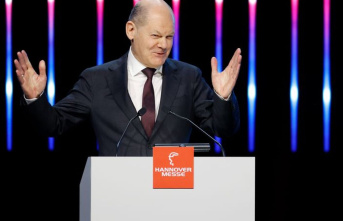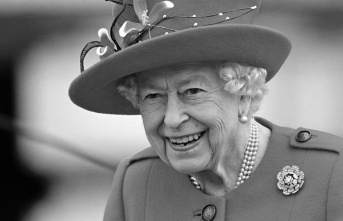European measures against the high electricity prices should be in place by the end of September at the latest. The current EU Council Presidency set a corresponding deadline on Friday at a crisis meeting of the EU ministers responsible for energy. "I expect the proposal (from the EU Commission) in a few days and I want to have clarity by the end of the month," said Czech Industry Minister Jozef Sikela, who chaired the meeting in Brussels. "I'm afraid that if we don't find a solution that sends a clear signal, there won't be enough energy at affordable prices." You have to act quickly and together.
The pressure is great
The pressure on the ministers to relieve the people at home is great. "It is very clear that this is not an easy business," said Federal Minister of Economics Robert Habeck (Greens). He reiterated that the high electricity prices could also lead to production restrictions for companies. Irish Environment Minister Eamon Ryan said: "We have to be honest with our consumers, households and businesses: we cannot take the full hit here." But part of the blow had to be cushioned.
Brussels blamed Russia for the high prices. "Russia is waging an energy war against Europe," said Lithuanian Energy Minister Dainius Kreivys. Energy Commissioner Kadri Simson stressed: "Russia has used its gas supplies as a weapon to trigger an energy crisis next winter, but also to weaken our economies and politically divide the European Union." One must ensure that these efforts fail.
During the week, the EU Commission outlined how this could be achieved in five proposals. The EU countries now wanted to find out which measures are most popular. On this basis, the EU Commission is then to make a legislative proposal in the coming week.
Maximum price for gas purchases from Russia disputed
"We will agree that electricity bills need to go down and that the EU Commission needs to propose something in the short term. (...) But we have different opinions on how best to achieve this," said Belgian Energy Minister Tinne Van der Straeten . There was discussion, for example, about how excess profits from energy states can be skimmed off and passed on to consumers. A maximum price for gas purchases from Russia is also controversial.
Economics Minister Habeck was open to introducing a price cap for Russian gas - but only if states like Hungary agree. If countries that are currently still getting gas from Russia are willing to take the risk of a complete supply stop by Russia, he would be happy to do that, said the Green politician. If countries do not want this, that should be respected. According to Habeck, Germany can now manage without Russian gas. This is "gigantic". Several states advocated such a price cap for Russian gas. However, countries like Belgium want a maximum price for all gas imports into the EU.
Electricity Saving Targets: Mandatory or Voluntary?
Sikela emphasized that the skimming off of excess profits and the additional relief for households must also be discussed. Germany supports such a measure, and several other countries also supported it. Lithuanian minister Kreivys, on the other hand, said he sees it as a "red line" as it would lead to interventions in the short-term spot market, which hurts long-term buying. "We cannot waste our time with half measures or measures that don't work," he said.
On the other hand, there was more agreement on possible measures to save electricity, especially in times of high demand. "We will open the discussion on how we can oblige countries to reduce electricity consumption, similar to what we did with gas," Sikela said. However, it was disputed whether new electricity savings targets should be binding or voluntary. Sikela also expected agreement on possible steps to ensure the liquidity of the markets. The European Commission had proposed adjusting the EU state aid rules in order to be able to quickly provide state support to electricity suppliers who had got into difficulties.







